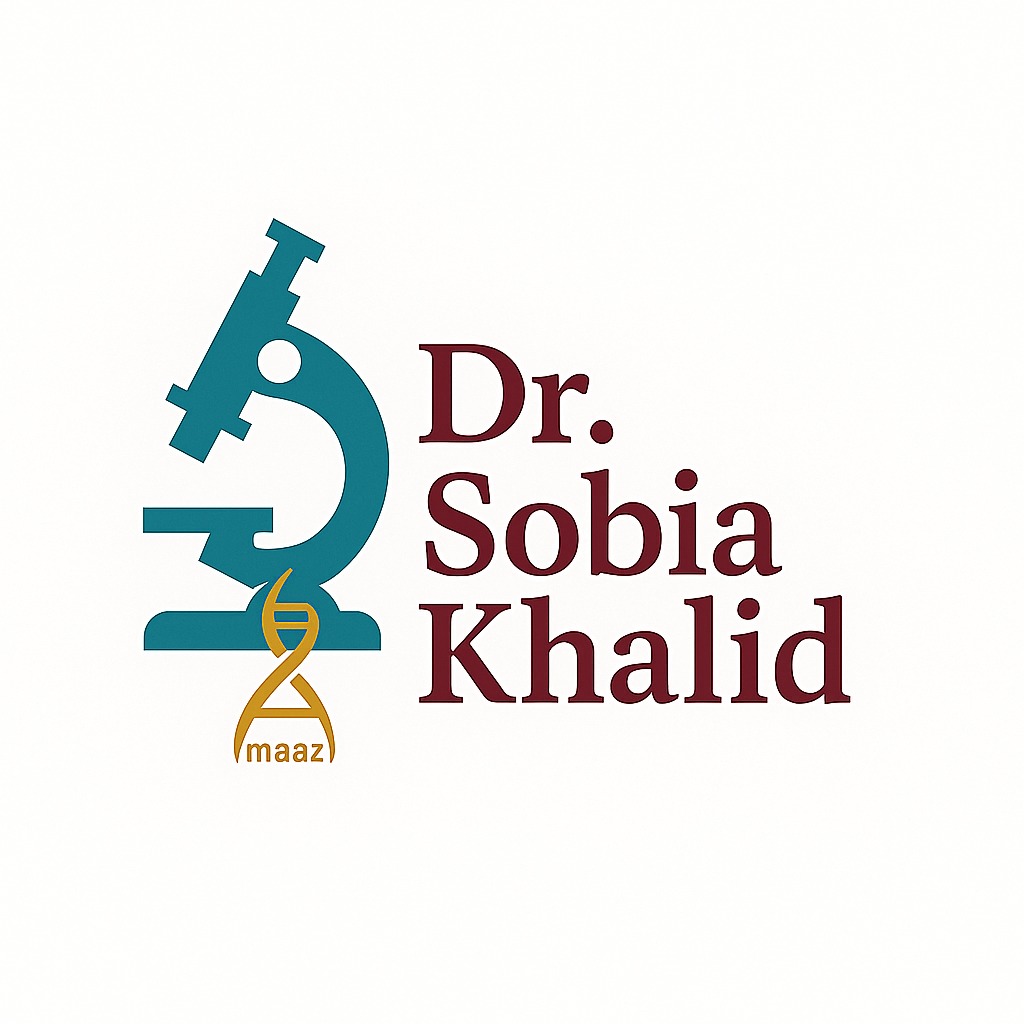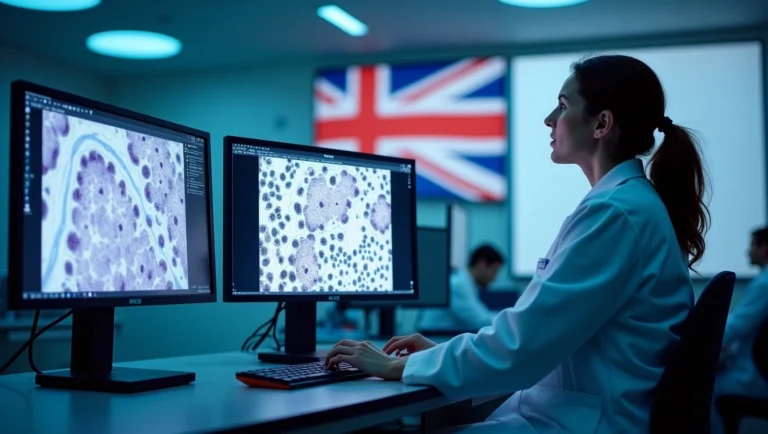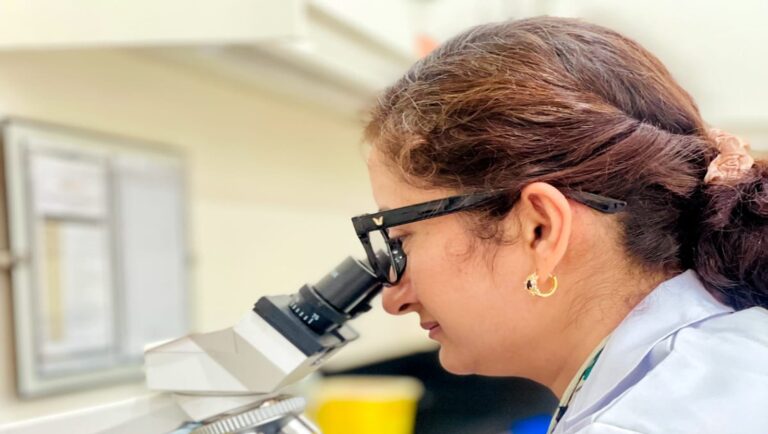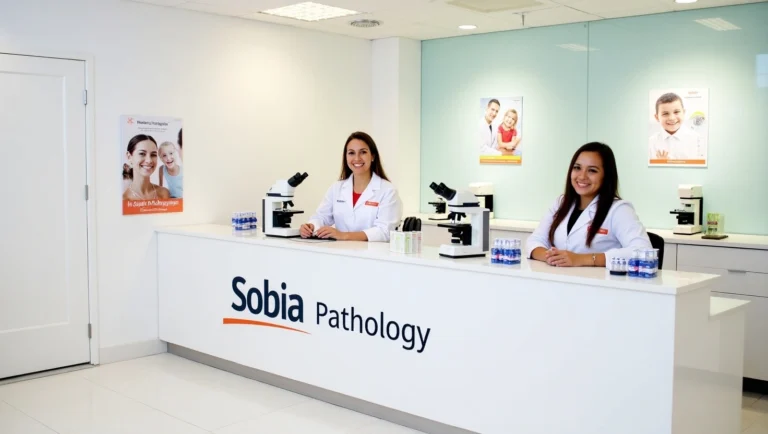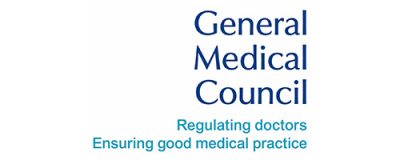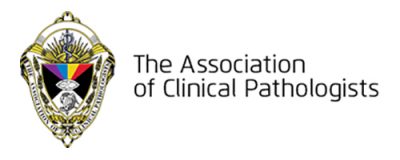Pathologists are often recognized for their critical role in diagnosing diseases through microscopic analysis of tissue samples. However, their expertise extends far beyond the laboratory, positioning them as vital advisors who bridge scientific precision with strategic decision-making in healthcare. By leveraging their deep understanding of disease processes, pathologists guide clinical teams, inform healthcare policies, and drive innovations in patient care. This blog explores the multifaceted role of pathologists as advisors, with insights drawn from the exemplary career of Dr. Sobia Khalid, a Consultant Pathologist with extensive experience in histopathology, education, and research.
The Advisory Role of Pathologists
Pathologists possess a unique blend of scientific knowledge and analytical skills, making them indispensable in strategic healthcare contexts. Their advisory roles span clinical practice, hospital administration, research, and public health, where they translate complex diagnostic data into actionable insights.
1. Guiding Clinical Decision-Making
Pathologists provide critical diagnostic information that shapes patient treatment plans. For instance, in breast cancer care, they determine tumor characteristics—such as grade, stage, and molecular profile—that guide oncologists in selecting therapies like hormone treatment or chemotherapy. Dr. Sobia Khalid, with her expertise in immunohistochemistry and molecular profiling (evidenced by her research on NGAL in lupus nephritis and SPARC in breast carcinoma), exemplifies how pathologists deliver precise data to inform personalized medicine. As advisors, they ensure clinicians make evidence-based decisions tailored to each patient’s condition.
2. Shaping Healthcare Strategy
Pathologists contribute to hospital and healthcare system strategies by optimizing diagnostic workflows and resource allocation. Dr. Khalid’s role as Head of the Pathology Laboratory at Siddique Family Hospital in Gujranwala demonstrates this, where she oversees operations and integrates advanced techniques like digital pathology to enhance efficiency. In advisory roles, pathologists collaborate with administrators to implement technologies, such as AI-assisted diagnostics, and streamline laboratory processes, ensuring cost-effective and timely care delivery.
3. Advancing Medical Education
As educators, pathologists advise on curriculum development and training programs, ensuring the next generation of healthcare professionals is well-equipped. Dr. Khalid’s experience as an Assistant Professor at the University of Health Sciences, Lahore, where she trained postgraduate students in M.Phil. programs and MSc Nursing, highlights this role. Her Certificate in Medical Teaching (2019) and third-place achievement in the program underscore her ability to shape educational strategies, ensuring pathology training aligns with clinical and research needs.
4. Driving Research and Innovation
Pathologists are at the forefront of medical research, advising on study design and clinical applications. Dr. Khalid’s extensive publication record, including articles in Cureus and Biomedica on topics like breast carcinoma and lupus nephritis, demonstrates how pathologists translate laboratory findings into advancements in diagnostics and treatment. As advisors, they guide research teams, identify novel biomarkers, and advocate for integrating research into clinical practice, fostering innovation in healthcare.
5. Informing Public Health and Policy
Pathologists advise on public health initiatives by providing data-driven insights into disease trends and diagnostic needs. Dr. Khalid’s work in breast cancer awareness seminars (e.g., at the University of Veterinary and Animal Sciences, 2018–2019) and her goal to provide diagnostic facilities in remote areas reflect this role. Pathologists can influence policies on screening programs, resource distribution, and technology adoption, ensuring equitable access to diagnostics, particularly in underserved regions.
Case Study: Dr. Sobia Khalid’s Advisory Impact
Dr. Sobia Khalid’s 12-year career in pathology illustrates how pathologists serve as advisors across multiple domains. At Siddique Family Hospital and Baseerat Pathology Laboratory, she has implemented advanced diagnostic techniques, improving accuracy and turnaround times. Her leadership in organizing workshops, such as the “Medley of Surgical Pathology Cases” (2019), and her role as a co-supervisor for research projects, including studies on breast carcinoma and Mycobacterium tuberculosis detection, highlight her strategic contributions to clinical practice and academia.
Dr. Khalid’s editorial role at Biomedica as a reviewer and coordinator further showcases her advisory expertise. By ensuring the quality of published research, she influences the scientific community’s standards and fosters evidence-based practice. Her involvement in CME activities at institutions like Shaukat Khanum Memorial Hospital and her coordination of Medical and Dental College Admission Tests demonstrate her ability to advise on educational and administrative strategies, bridging science with operational excellence.
Challenges in the Advisory Role
Pathologists face challenges in their advisory roles, including:
-
Communication Barriers: Translating complex scientific data into actionable recommendations requires strong interpersonal skills, an area where Dr. Khalid excels, as noted in her CV.
-
Resource Constraints: Advising on technology adoption, like digital pathology, requires navigating budget limitations, a challenge Dr. Khalid addressed by optimizing laboratory processes.
-
Interdisciplinary Collaboration: Pathologists must align with clinicians, administrators, and policymakers, requiring leadership and teamwork, qualities Dr. Khalid honed as a workshop organizer and team leader.
The Future of Pathologists as Advisors
Emerging technologies, such as digital pathology and AI, are expanding the advisory role of pathologists. By integrating these tools, pathologists can provide real-time diagnostic insights and advise on their implementation, as Dr. Khalid did at Siddique Family Hospital. Additionally, their role in precision medicine—advising on targeted therapies based on molecular profiles—will grow, making them key strategists in personalized healthcare.
The NHS and global healthcare systems can benefit from empowering pathologists as advisors. By involving them in policy-making, technology adoption, and multidisciplinary teams, healthcare systems can enhance diagnostic accuracy, optimize resources, and improve patient outcomes.
Conclusion
Pathologists like Dr. Sobia Khalid are more than diagnosticians; they are strategic advisors who bridge science and strategy. Through clinical guidance, educational leadership, research innovation, and public health advocacy, they drive improvements in healthcare delivery. Dr. Khalid’s career—marked by her contributions to breast cancer diagnostics, pathology education, and research—exemplifies the transformative impact of pathologists in advisory roles. As healthcare evolves, pathologists will continue to play a pivotal role in shaping strategies that enhance patient care and advance medical science.
